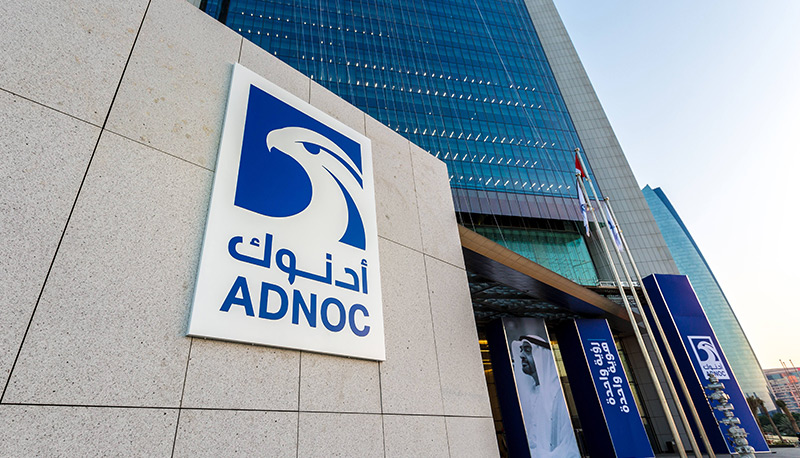State-run Gas Authority of India Ltd (GAIL) and Abu Dhabi National Oil Co. (ADNOC) have signed a Memorandum of Understanding to explore collaboration opportunities in renewable energy, new projects, and decarbonization efforts, in addition to liquefied natural gas (LNG) supply and decarbonization.
The agreement includes the review of joint equity investments in renewables.
Significantly, both ADNOC and GAIL are scouting for opportunities in renewables and new energy areas to align with energy transition.
GAIL is committed to reducing its carbon emissions and implementing renewables and green hydrogen projects. It is setting up a 10 MW green hydrogen production unit at Vijaipur (Madhya Pradesh). The unit will produce green hydrogen using polymer electrolyte membrane (PEM) technology based on water electrolysis. It has also initiated a study on the technical feasibility of H2 blending in the city gas distribution network. The company is exploring various opportunities for increasing its renewable portfolio through organic as well as inorganic routes.
ADNOC is looking to create domestic and international hydrogen value chains, with UAE being home to some of the largest and lowest-cost solar plants in the world.
GAIL is one of India’s largest natural gas companies with integrated operations across the value chain, which is expanding its presence in renewable energies including solar, wind, and biofuels.
ADNOC was the first LNG producer in the Middle East and has over 40 years of experience in the LNG market. It is currently in the midst of a major expansion of its natural gas business, accelerating production to meet both domestic and international demand.
This content is protected by copyright and may not be reused. If you want to cooperate with us and would like to reuse some of our content, please contact: editors@pv-magazine.com.









By submitting this form you agree to pv magazine using your data for the purposes of publishing your comment.
Your personal data will only be disclosed or otherwise transmitted to third parties for the purposes of spam filtering or if this is necessary for technical maintenance of the website. Any other transfer to third parties will not take place unless this is justified on the basis of applicable data protection regulations or if pv magazine is legally obliged to do so.
You may revoke this consent at any time with effect for the future, in which case your personal data will be deleted immediately. Otherwise, your data will be deleted if pv magazine has processed your request or the purpose of data storage is fulfilled.
Further information on data privacy can be found in our Data Protection Policy.